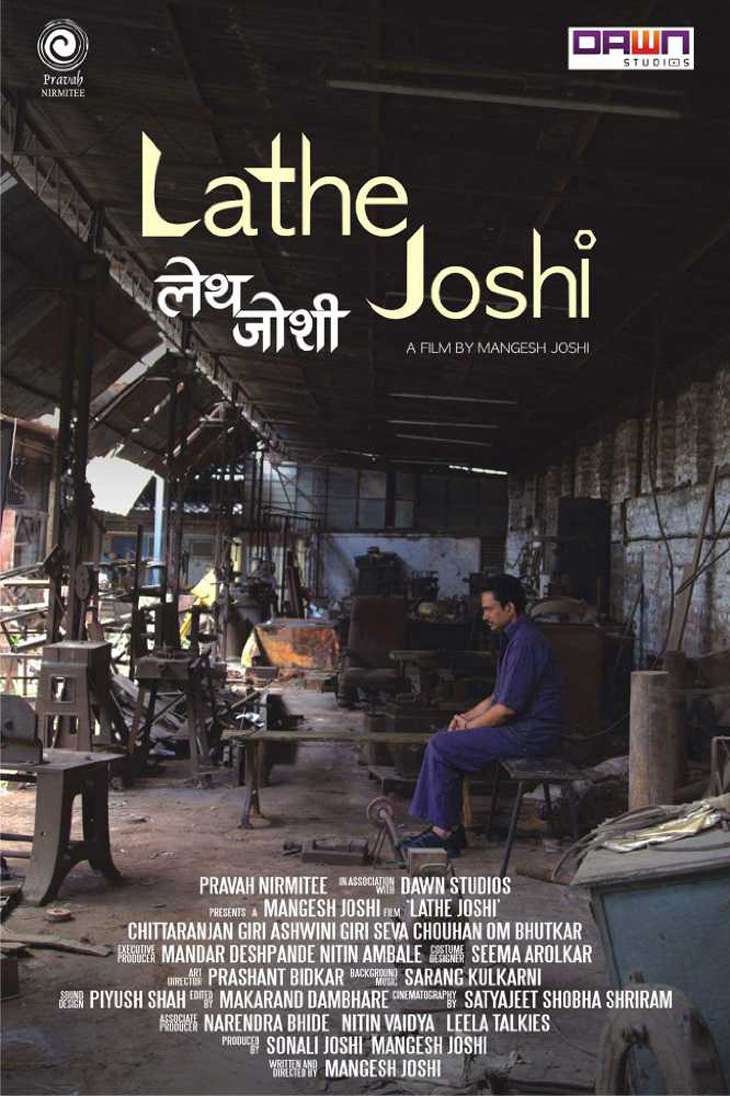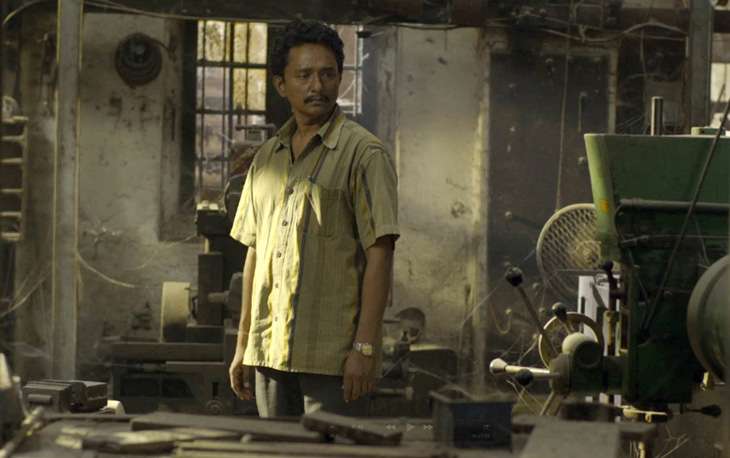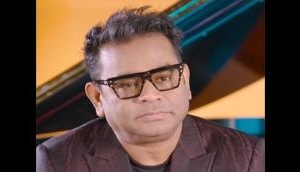Lathe Joshi is the man vs machine drama we're all already living out

Don't have an e-wallet app to make online transactions in these dark cash-strapped days? Not even Netbanking? Your ignorance of financial technology making you feel like a medieval artefact? If the answers are in the affirmative, the present times can be a great segue to understanding the world of Lathe Joshi and the dislocation he feels as he stares at his family - on the other side of the digital divide.
Vijay "Lathe" Joshi is the protagonist of Mangesh Joshi's brilliant Marathi feature Lathe Joshi, screened recently at the Dharamshala International Film Festival (DIFF) 2016. Muted, with nuances that hit home hard and a treatment that's as simplistic as the message is powerful, Lathe Joshi follows the life of Vijay Joshi, a factory worker, rendered jobless because the machine he operated to make a living has become outdated.

Joshi's struggle
The owners have decided to upgrade to newer, more efficient computerised machines. Vijay, who's worked for over thirty years at the factory with the manual - and now obsolete, lathe machine, finds himself wading through a world that's neck-deep in 'technology', wondering where he fits in, how to locate himself in this new, more efficient society and doubting his ability to fit at all.
It isn't just the factory where Joshi suffers. It's inside his own home, that Joshi has to bear the pains of disconnect. His son is an engineer who repairs and assembles electronic goods like computers. His wife, who cooks and has a decent tiffin service going, buys a vegetable processor and mixer that makes her job easier. Even Joshi's old half-blind mother is quite addicted to the television. So Joshi cannot even have the comfort of 'belonging' in the intimacy of his home - that's how far technology has invaded our collective lives.
The role of Joshi has been essayed ably by actor Chittaranjan Giri, who widens the scope of the film when he says, "As I was reading the script, on a direct level, it was a man vs machine narrative. But I also felt that man is with the machine too, not against it necessarily."
The attachment Joshi feels towards his machine is because he doesn't view it as something that disrupts his skill or art. If anything it enhances it. A machine will increase work efficiency, and Joshi is open to it.
Man and machine
There are many scenes where Joshi eyes factory machines, his son's electronic equipment and other assorted 'machines' gingerly. Like he wouldn't mind giving it a shot. But what Joshi, and Giri, isn't open to is a situation when an individual's inherent art is totally subsumed by the machine.
Joshi then, isn't averse to machines. He's averse to his identity as a skilled worker being taken away.
At some point in the film Joshi goes to his employer (who's ailing now, his younger son runs the factory) and as he waits outside the bungalow, the employer's wife is heard saying "Lathe Joshi is here." That's the first time Joshi smiles in the film.
"That's when he felt he still has an identity of his own. That he isn't like the machines that were thrown away, that his art is still alive," says Giri, his argument feeding into the oft discussed way in which "a machine will produce a hundred of the same kind without any touch of originality. But when it comes to detailing, it's difficult to do that with a machine... his is a fight for his art more than it is against machines necessarily. It's also a journey of his stubbornness, to wrest the respect his skill deserves."

Seeing eyes
Towards the end of the film Joshi's old mother does an online darshan that she always wanted with the help of her grandson, who chooses garlands for her and all else needed for the digital pilgrimage.
Joshi's mother passes away soon after - subsequently, we see Joshi sitting on his mother's bed and putting on the dark glasses his mother used before her eye surgery.
The obvious hint and symbolism of this would be that Joshi has taken on the position of his then-blind mother. He's finally embraced the fact that the digital, machine supported world is too bright for him with its advances.
He needs a buffer to shield his vision from the harsh reality he sees all around him. Giri though, says that he'd much rather look at an optimistic interpretation: "He hasn't surrendered. Joshi might just be using the glasses to see better, to understand better."
There'll be numerous interpretations and the film definitely offers a lot of scope for that throughout. There's just one aspect which could've been better addressed. The film again feeds into the age-old narrative of the man handling the machine (Joshi, his son) whereas the woman (Joshi's wife in this case) can seek economic independence through the tiffin service at best.
Overall, the film definitely is one to watch out for. Let's hope it secures a commercial release soon. The Lathe Joshis around us deserve a hearing.
First published: 15 November 2016, 9:24 IST






![BJP's Kapil Mishra recreates Shankar Mahadevan’s ‘Breathless’ song to highlight Delhi pollution [WATCH] BJP's Kapil Mishra recreates Shankar Mahadevan’s ‘Breathless’ song to highlight Delhi pollution [WATCH]](https://images.catchnews.com/upload/2022/11/03/kapil-mishra_240884_300x172.png)

![Anupam Kher shares pictures of his toned body on 67th birthday [MUST SEE] Anupam Kher shares pictures of his toned body on 67th birthday [MUST SEE]](https://images.catchnews.com/upload/2022/03/07/Anupam_kher_231145_300x172.jpg)






